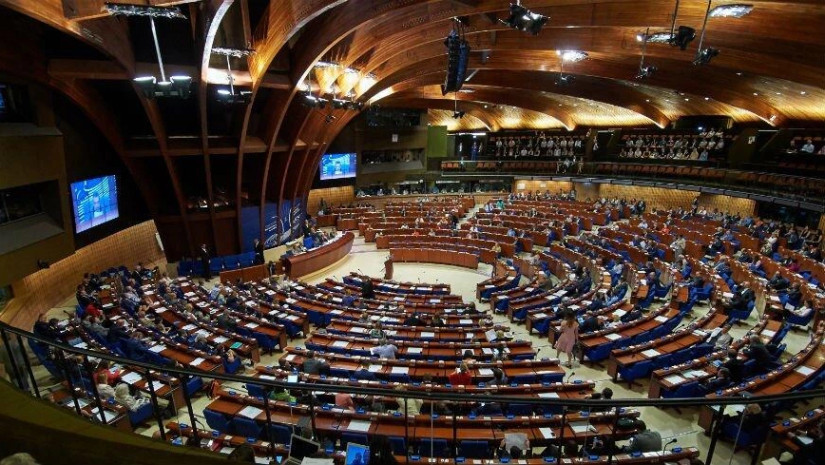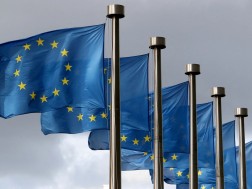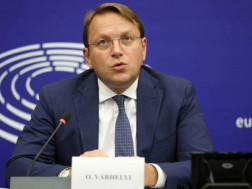Georgia is at a crossroads on its path to European integration, said the co-rapporteurs of the Parliamentary Assembly of the Council of Europe (PACE) for the monitoring of Georgia, Claude Kern and Edite Estrela, following their visit to Georgia from 27 to 29 March 2023.
At the same time, the co-rapporteurs expressed their serious concern about the fact that, at this important moment for Georgia’s European integration prospects, the reform process seems to be clearly stalling.
“Georgia is at a crossroads. We urge the Georgian authorities and all political forces to overcome their extreme animosity and polarisation, to set aside narrow party interests, and to jointly work with all stakeholders to implement the 12 priority areas for reform outlined by the European Commission in order for the country to obtain EU candidate status,” said the co-rapporteurs.
They highlighted that these 12 priority areas are not new to the country. They largely coincide with the reform priorities outlined by the Assembly in its most recent resolution on the honouring of obligations and commitments to the Council of Europe by Georgia (Resolution 2438 (2022)). As outlined by the Assembly in that resolution, a fundamental priority is resolving the extreme polarisation in the political environment that is overflowing to all areas of the society. Resolving this polarisation fully depends on the commensurate political will of all political forces, majority and opposition alike, to change their behaviour and attitudes. In this context the co-rapporteurs condemned the increasingly frequent attacks, often by anonymous actors, against civil society organisations and their leadership, including by maliciously questioning their allegiance to Georgia’s sovereignty which can endanger their physical safety.
“A vibrant and critical civil society, as exists in Georgia, is essential for a well-functioning democratic society. We therefore call upon the authorities to resolutely condemn, and where necessary investigate, these attacks that aim to silence and stigmatise these organisations,” said the co-rapporteurs.
They reiterated the need for continuing reform of the judiciary with a view to ensuring its role as a genuinely independent and impartial arbiter. While partial reforms have been implemented since the adoption of Resolution 2438 (2022), a holistic reform as recommended by the Assembly, based on an in-depth and independent evaluation of the progress made by the previous waves of judicial reforms, still has to be adopted. In this respect the co-rapporteurs stressed the need for further reform of the High Council of Justice, with a view to addressing its corporatism, the lack of transparency of its decision-making processes, and its undue control over the justice system, which are undermining the independence of the judiciary. This is especially important in the context of the so-called “de-oligarchisation” law. While the corapporteurs lauded the willingness of the authorities to combat the excessive influence of vested interests in economic, political and public life, they expressed concern that – as emphasised by the Venice Commission in its opinion on this draft law – the so-called personal approach taken by this law would be difficult to reconcile with the European Convention on Human Rights.
In addition, in the view of the rapporteurs, in the context of the extreme polarisation of the political environment and the existing questions regarding control of the High Council of Justice over the judiciary, the personal approach could make the law vulnerable to political abuse, which would run counter to the stated objectives of the law.
The co-rapporteurs recommended that the authorities drop the personal approach in the draft legislation in favour of the so-called systemic approach of strengthening the available mechanisms to fight the undue influence of vested interests, an approach that is also clearly preferred by the Venice Commission.
During their visit the co-rapporteurs were also informed by the relevant interlocutors about the situation regarding former President Saakashvili. While explicitly not wishing to comment on any legal aspects of his cases, on which the rapporteurs fully defer to the European Court of Human Rights, they expressed concern about the controversy regarding his health situation.
“In the best interests of Mr Saakashvili, it is important to depoliticise his health condition and to ensure that all stakeholders can rely on neutral, reliable, and trusted information. The presence of impartial foreign doctors could provide an important step in this direction, and we have therefore urged the authorities and family of Mr Saakashvili to quickly come to a consensual agreement that would ensure the access of foreign doctors that are ready to assist with Mr Saakashvili’s treatment,” they said.
















